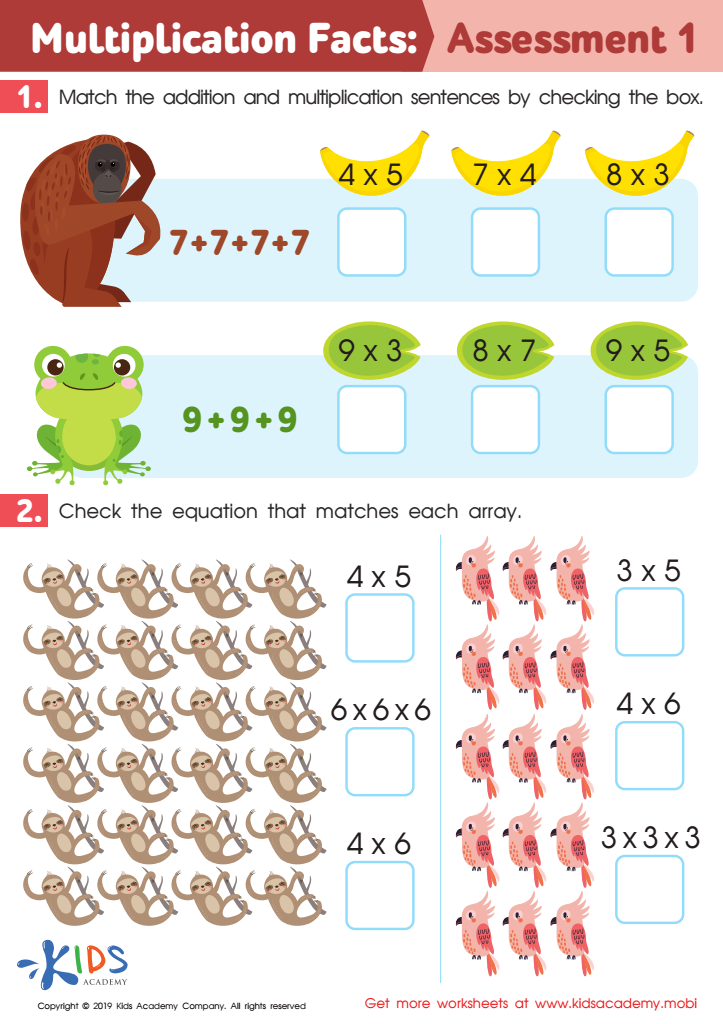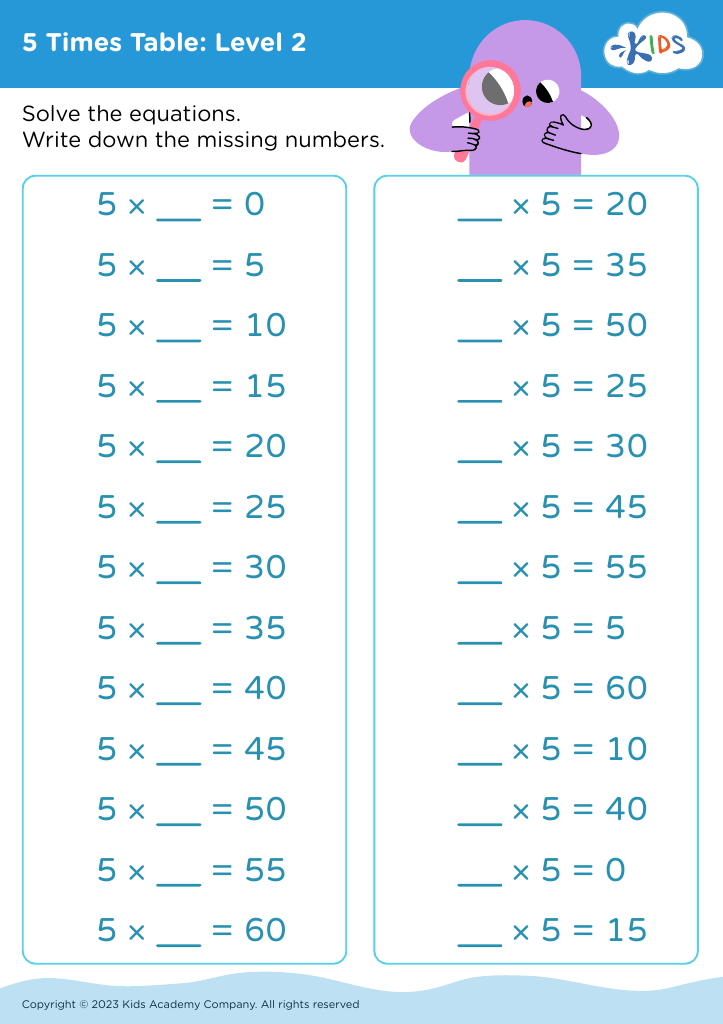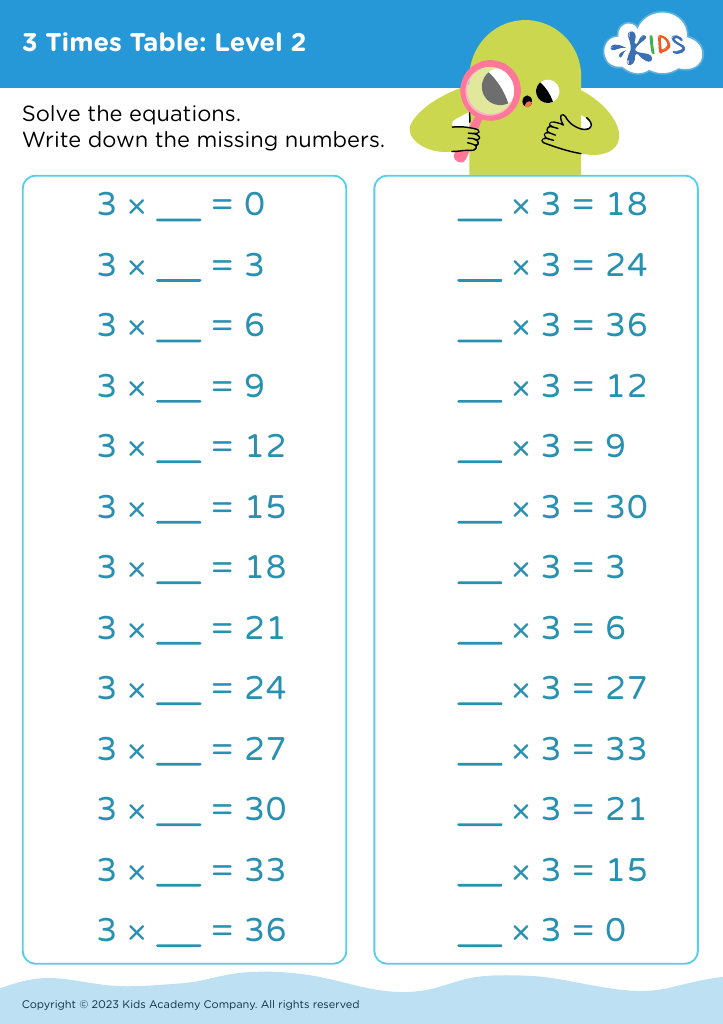Mental arithmetic skills Normal Multiplication Worksheets for Ages 8-9
3 filtered results
-
From - To
Enhance your child's mental arithmetic skills with our Normal Multiplication Worksheets designed for ages 8-9! These engaging worksheets focus on developing essential multiplication skills through fun and interactive exercises. As students practice, they will build confidence and speed in their calculations, setting a strong foundation for future math success. Our worksheets make learning enjoyable, promoting independent thinking and problem-solving abilities. Perfect for homework, classroom activities, or at-home practice, these resources cater to various learning styles and aim to boost your child's mathematical proficiency. Unlock your child's potential in math with our thoughtfully crafted mental arithmetic worksheets today!


Multiplication Facts: Assessment 1 Worksheet
Parents and teachers should prioritize mental arithmetic skills, particularly normal multiplication, for children ages 8-9, for several reasons. Firstly, mastering multiplication lays a foundational skill essential for more advanced mathematics. At this developmental stage, children are transitioning from concrete to abstract thinking, making mental arithmetic a vital bridge that enhances their problem-solving abilities and cognitive flexibility.
Developing mental multiplication skills promotes confidence and independence in students. When children can perform calculations without relying on calculators or paper, they build self-esteem and develop a sense of achievement. Moreover, these skills support their ability to engage with real-life situations, such as budgeting, shopping, and time management, enabling them to apply their knowledge in practical settings.
Additionally, mental arithmetic strengthens working memory, attention, and overall cognitive function. As children practice these skills, they enhance their concentration and analytical thinking, which benefits their overall academic performance.
Finally, fostering an environment that promotes mental multiplication can make learning enjoyable and intriguing. Through games, challenges, and engaging activities, parents and teachers can motivate children to seek mastery in mathematics, promoting a lifelong love for learning. This early focus on mental arithmetic can set a successful trajectory for future academic endeavors.
 Assign to My Students
Assign to My Students

















